Why You Must Stock Upon Some Magical Ayurvedic Herbs
7 minuteRead
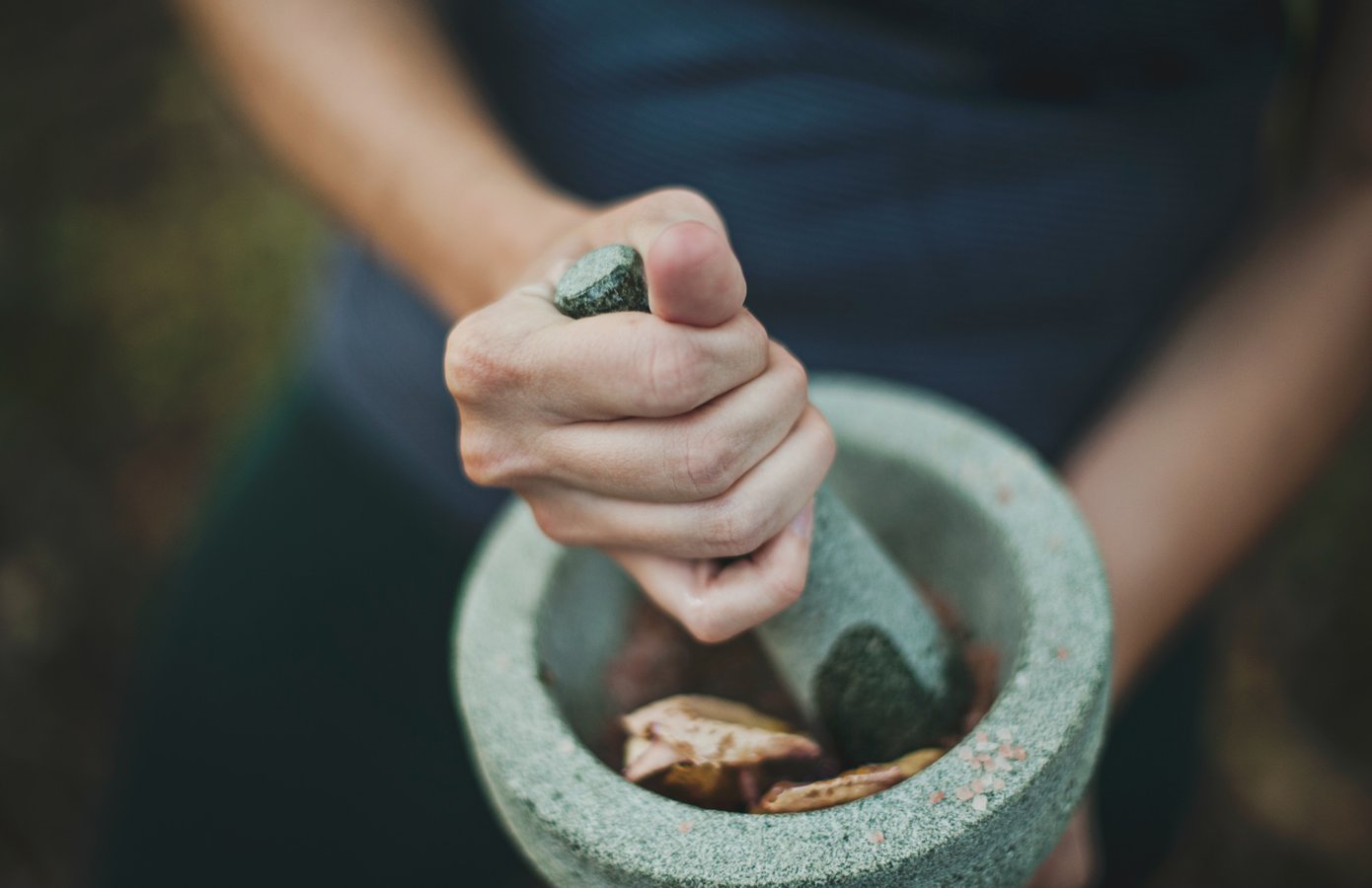
The tales of Ayurvedic wonders echo everywhere. India has a history of resorting to this traditional medicinal system founded close to five thousand years ago that works on three doshas (or principles) namely; Vata, Pitta and Kapha. The word ‘Ayurveda’ itself means ‘knowledge of life’. So it’s quite natural that it piques the interest of scientists and doctors all over the world. Ayurvedic herbs are an essential part of the ayurvedic medicinal system.
The tales of Ayurvedic wonders echo everywhere. India has a history of resorting to this traditional medicinal system founded close to five thousand years ago that works on three doshas (or principles) namely; Vata, Pitta and Kapha.
The word ‘Ayurveda’ itself means ‘knowledge of life’. So it’s quite natural that it piques the interest of scientists and doctors all over the world.
Ayurvedic Herbs
Ayurvedic herbs are an essential part of the ayurvedic medicinal system. From time immemorial, we have turned to these herbs to treat various illnesses, enhance mental clarity, boost immunity, flawless skin, hair, etc. In Ayurveda, an individual can be treated as a whole and not for the single worry at hand. Thousands of herbs have been used in Ayurveda to treat diseases where key ingredients are derived from leaves, roots, stems and barks of plants. Ayurvedic herbs are vital to maintaining a balance in the mind and body.
Ayurvedic herbs for immunity
- Giloy - One of the best immunity booster herbs in Ayurveda
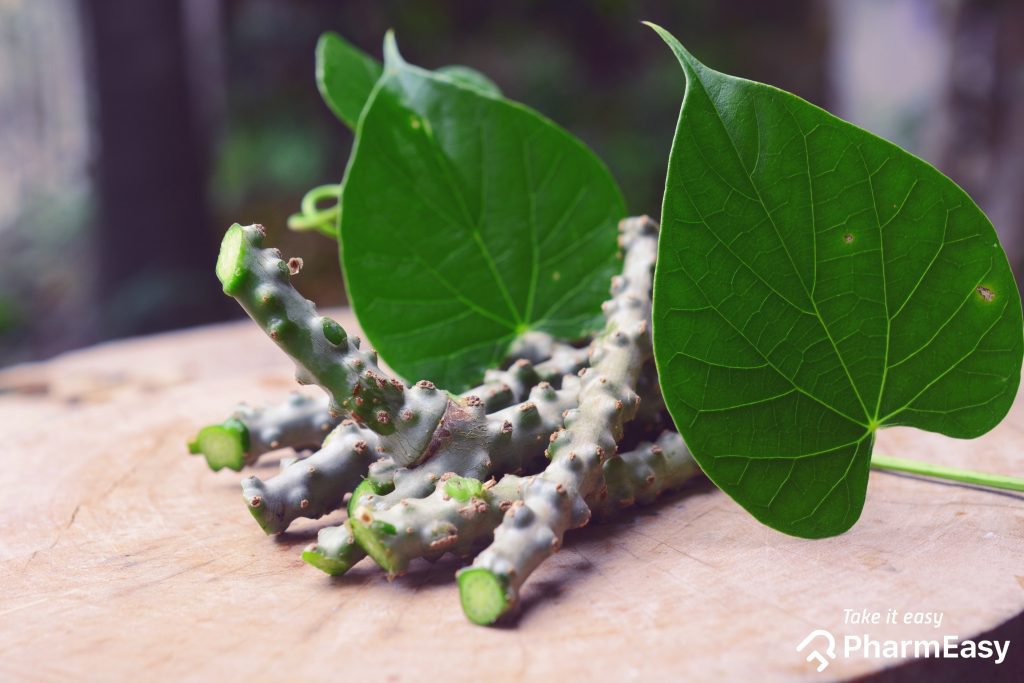
Source- https://pharmeasy.in/blog/health-benefits-of-giloy-the-ultimate-immunity-booster/
In Ayurveda, giloy is popularly known as ‘Amrita’, the literal translation of which means ‘root of immortality’. Need we say more? Giloy, scientifically known as Tinospora Cordifolia, is considered to be one of the best medicines to treat various fevers and other conditions, according to Ayurveda. Its stems or leaves can be consumed in the form of a decoction or as readymade powder/capsules.
What’s so magical about this plant, after all?
First things first. In order to consume this healing herb, assemble a few clean, chopped branches of the plant, grind them with water to make a green liquid paste and sieve the paste to extract the giloy juice.
Note to the reader: Making the juice is as fun as it gets, drinking it is the real battle. After all, all that is beneficial is also bitter.
Benefits of Giloy
Right from immunity boosting to fighting anxiety, here’s what giloy can do for you:
A popular ingredient in Indian medicine since the beginning of time, the giloy plant has numerous medicinal properties. Although the stem of the plant is oftentimes used to prepare concoctions, many experts believe that even its roots have exceptional health benefits.
a) Fighting off respiratory issues
The anti-inflammatory powers found in this herb is said to fight off common respiratory issues including frequent coughs, colds, tonsillitis.
Besides this, it can also provide relief to asthmatic patients. While symptoms such as chest congestion, difficulty in breathing, coughing, and wheezing can make asthma one’s worst nightmare, you can make use of giloy to treat these symptoms better.
b) Immunity-Boosting
This heart-shaped herb (and aptly so) is rich in antioxidants that can help fight off free radicals and germs that cause diseases. It could also assist your body with removing toxins, purifying your blood, combating liver diseases, and fighting UTIs.
Antipyretic in nature, it also helps one fight off chronic fevers and is highly recommended to a dengue patient. Giloy can also build our immunity to fight off foreign particles and build immunity against the coronavirus.
2. Ashwagandha: A woody herb that gives your immune system the boost it needs. By managing the production of cortisol in the body, ashwagandha reduces stress, which in turn, is related to staying resilient from diseases. You can consume this herb by adding it to milk along with a pinch of turmeric for best results.
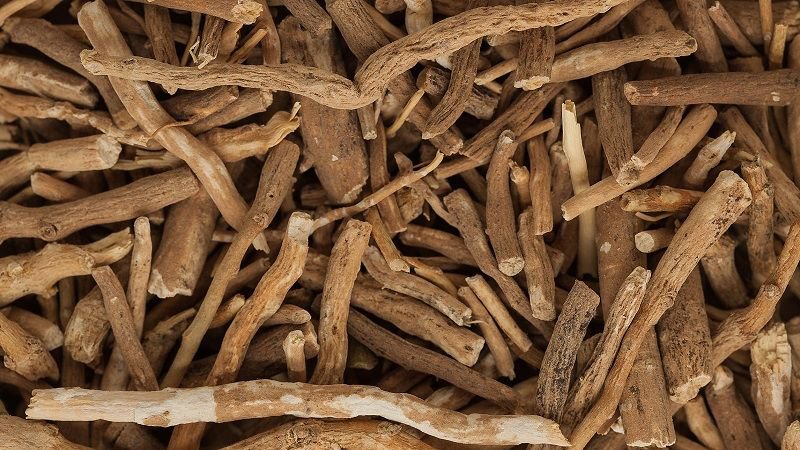
Source- https://www.ayurtimes.com/ashwagandha-withania-somnifera/
3. Haldi: Haldi or Turmeric, not only helps step up immunity but also contains healing properties. It is for this very reason, that your mother would often prescribe a good ol’ remedy of ‘Haldi Doodh' or turmeric milk to you or anyone else who is down with a cold in the family. The curcumin in turmeric has properties that help stabilise the immune system. It does wonders for people with chronic conditions like diabetes, arthritis or asthma. Indian households, in particular, don’t shy away from using this superfood as an active ingredient in all their meals.
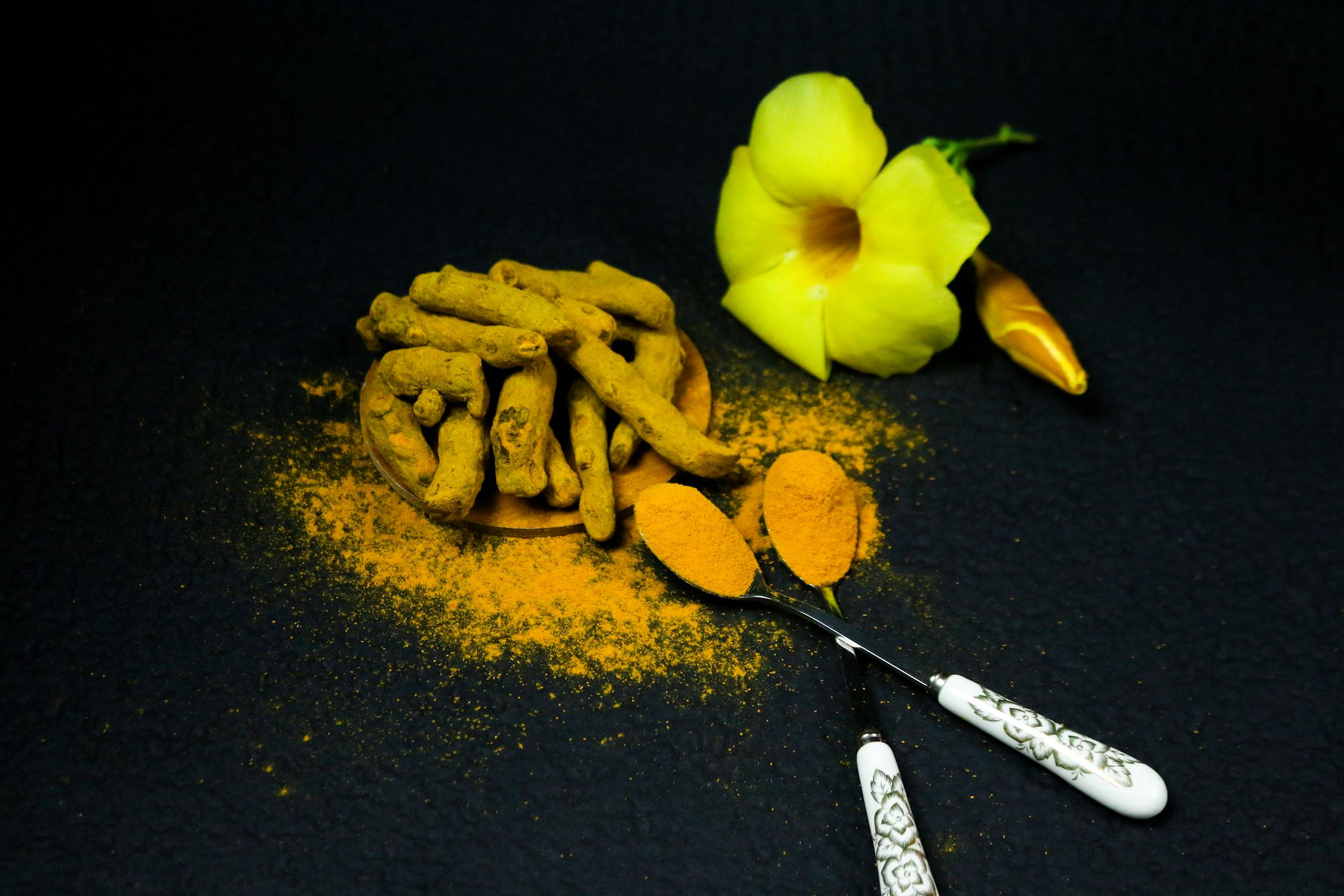
4. Amla: Gooseberry is one of the richest sources of vitamin C in Indian diets and has the ability to enhance the functioning of one’s immune system. Drink Amla juice on an empty stomach in the morning to help boost your immunity. It is not recommended to consume Amla after sunset.
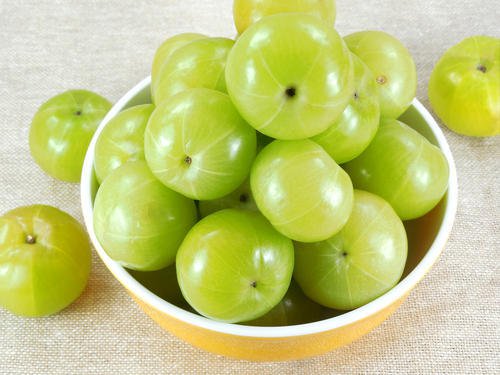
Source- https://www.indiamart.com/proddetail/amla-11548583362.html
Best ayurvedic herbs for weight loss
Losing weight is not an easy task for many, and because each technique varies from person to person depending on your genetic disposition, it’s hard to find a reliable remedy. But Ayurveda promises to help burn your stubborn belly fat and also keep you healthy. Here are 5 powerful Ayurvedic ingredients that can help you lose weight:
- Guggul
Made from sag (gum resin) of the Commiphora Mukul tree, a native plant of India, Bangladesh and Pakistan, Guggul has been prescribed for centuries to tackle obesity by suppressing appetite. Guggul does this by affecting your Thyroid to stimulate metabolism.
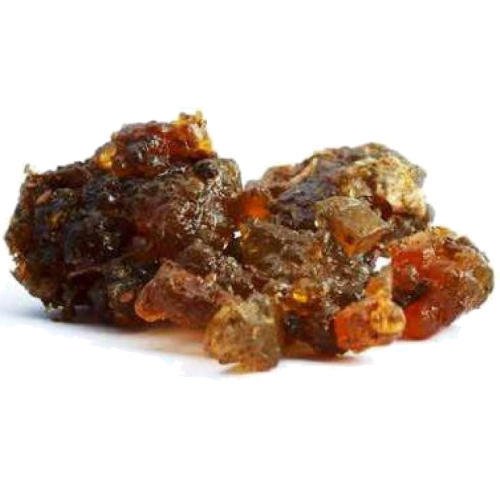
Source- https://www.indiamart.com/proddetail/guggul-extract-4168649830.html
- Malabar tamarind
Garcinia Cambogia, commonly known as Malabar Tamarind is a tropical fruit that is well known in South East Asia and has a similar flavour to regular tamarind. The sour flavour is favoured by many traditions. It helps fight weight loss by burning fat and helping suppress appetite. The composition is what makes it specifically effective since it contains Hydroxycitric acid that is known to block the enzymes used in the body to make fat. It also induces serotonin release which reduces hunger.
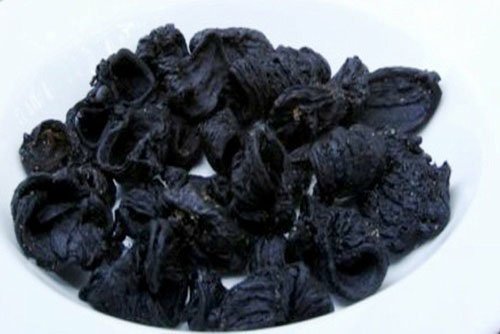
Source- https://www.amazon.in/Malabarkart-Malabar-Tamarind-1kg/dp/B07DH5FPBP
- Punarnava
With its diuretic properties that help maintain the health of the bladder and kidneys, the ingredient helps relieve water retention in the body. This rejuvenating herb is composed of potent bioactive constituents that prevent weight gain and reduce the bad cholesterol in the blood. As a mild laxative, it helps wash out harmful toxins from the body and maintain body weight.
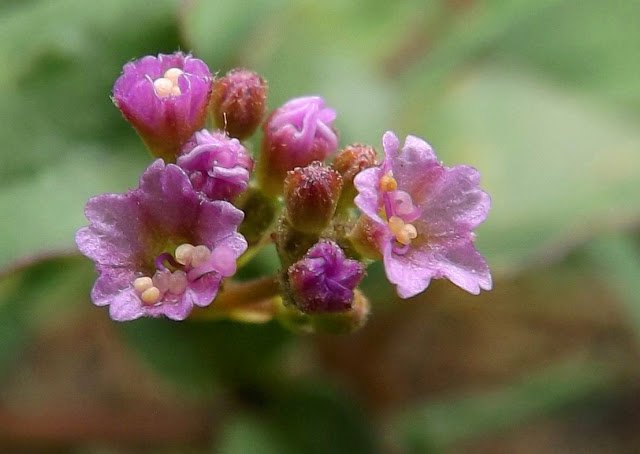
Source- http://www.floraofbangladesh.com/2016/06/punarnava-boerhavia-diffusa.html
- Kalonji
Also commonly known as cumin, active phytochemicals in Kalonji help speed up weight loss by altering the expression of specific genes that are observed to control appetite and fat loss. This in turn helps reduce fat, specifically around the belly as per studies.
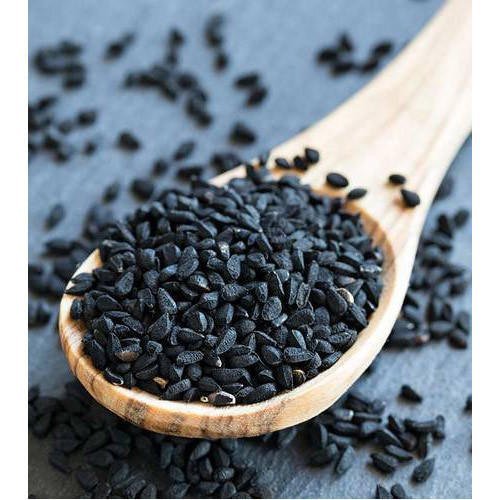
Source- https://www.indiamart.com/proddetail/kalonji-seeds-nigella-sativa-black-cumin-21355017062.html
- Dalchini (cinnamon)
Although known for its flavour, cinnamon has medicinal properties which can aid weight loss and help shed some kilos. Cinnamon has been observed to help regulate the blood sugar level of the body and improve the function of insulin. It also helps suppress your appetite by keeping you full for longer due to its high fibre content while also increasing your metabolic rate.
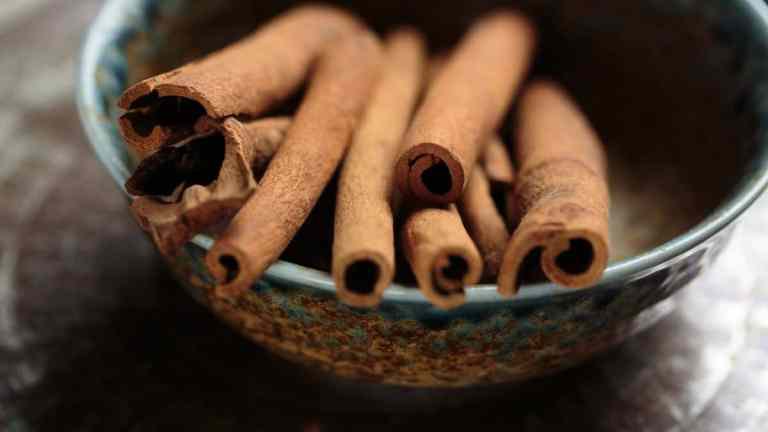
Source- https://lalitatimes.com/scientific-health-benefits-dalchini-cinnamon/
Ayurvedic herbs for Healthy Skin
Let me paint a slightly unpleasant picture for you. Skin exposure is unavoidable. Be it at home or at work, the constant exposure to germs and pollutants in external environments, along with the harshness of UV rays in sunlight, tend to damage our skin.
These harmful factors in turn result in wrinkles, fine lines, dark patches, loss of elasticity, prominent tans, grooves and sagging, leading to a dull and lifeless look on our faces.
But here’s the silver lining.
Although these problems are inherently modern, the solutions for smooth, flawless and radiant skin can just as easily be found in the age-old ayurvedic remedies.
5 Ayurvedic Herbs that come with miraculous skin benefits:
1. Gotu Kola (Asiatic Pennywort)
Abundant in powerful antioxidants, Gotu kola, also called mandukaparni, is the perfect therapy for diminishing acne, acne scars and injuries on the skin.
Try it:
Dry a bunch of Gotu kola leaves, make a powder out of it and mix it with a spoon of honey. Apply a tiny portion on regions of your skin with pimples in order to reduce swelling and redness.
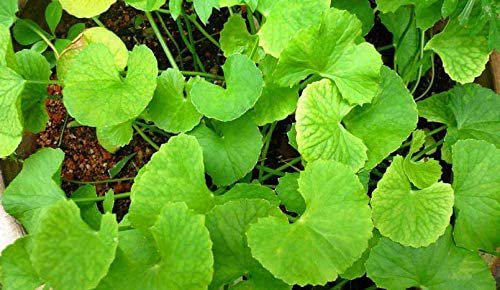
Source- https://www.amazon.co.uk/CSNCH300-Centella-Asiatica-Indian-Pennywort/dp/B07BHRQMT9
- Amla (Indian Gooseberry)
Amla is famous for the treasure trove of benefits it houses, for the wellness of the skin, such as vitamin C, gallic acid and tannins. Being adaptogenic, it safeguards the skin from excess stressors.
Try it:
Dab some diluted amla juice on your face, leave it on for 8-10 minutes and wash it off with lukewarm water to acquire skin that looks rested and free from wrinkling or drooping.
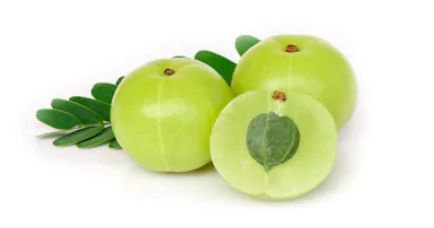
Source- https://in.pinterest.com/pin/806496245760712638/
3. Chandan (Sandalwood)
With a pleasant scent, excellent cooling properties and organic brightening benefits, sandalwood remarkably rectifies dark spots and suntans, efficiently treating uneven skin.
Try it:
Make a paste using Chandan powder and milk, apply a uniform layer onto your face after cleansing it and let it stay for about 12-15 minutes, Rinse off to see a flawless, fair complexion.
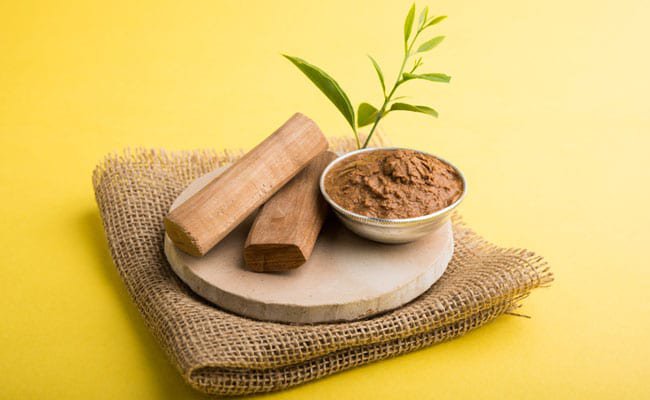
Source- https://www.chandigarhayurvedcentre.com/blog/chandan/
4. Salai (Indian Frankincense)
Salai, popularly known as sallaki, is infused with anti-inflammatory properties. It is one of the best antidotes for fixing a variety of skin disorders including eczema, rosacea and psoriasis.
Try it:
Smear some gum resin extract of the salai plant on wounded portions of the skin, leave it on for 5 minutes and wash off with cold water. This also helps to cure breakouts and blemishes.
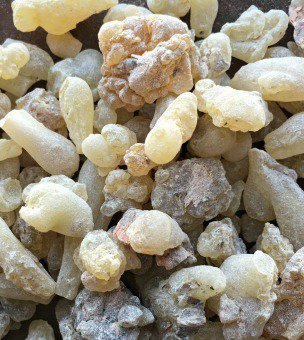
Source- https://www.indiamart.com/proddetail/indian-frankincense-15848787833.html
- Gulab (Rose Plant)
Famous for its enticing fragrance, Gulab holds vast reserves of hydrating phytonutrients, including vitamins A and B complex. These contribute towards retaining moisture and boosting collagen synthesis.
Try it:
Evenly spread a watery concentration on rough or faded areas of skin, to instantly tone and moisturize your face and get an au natural glow up!
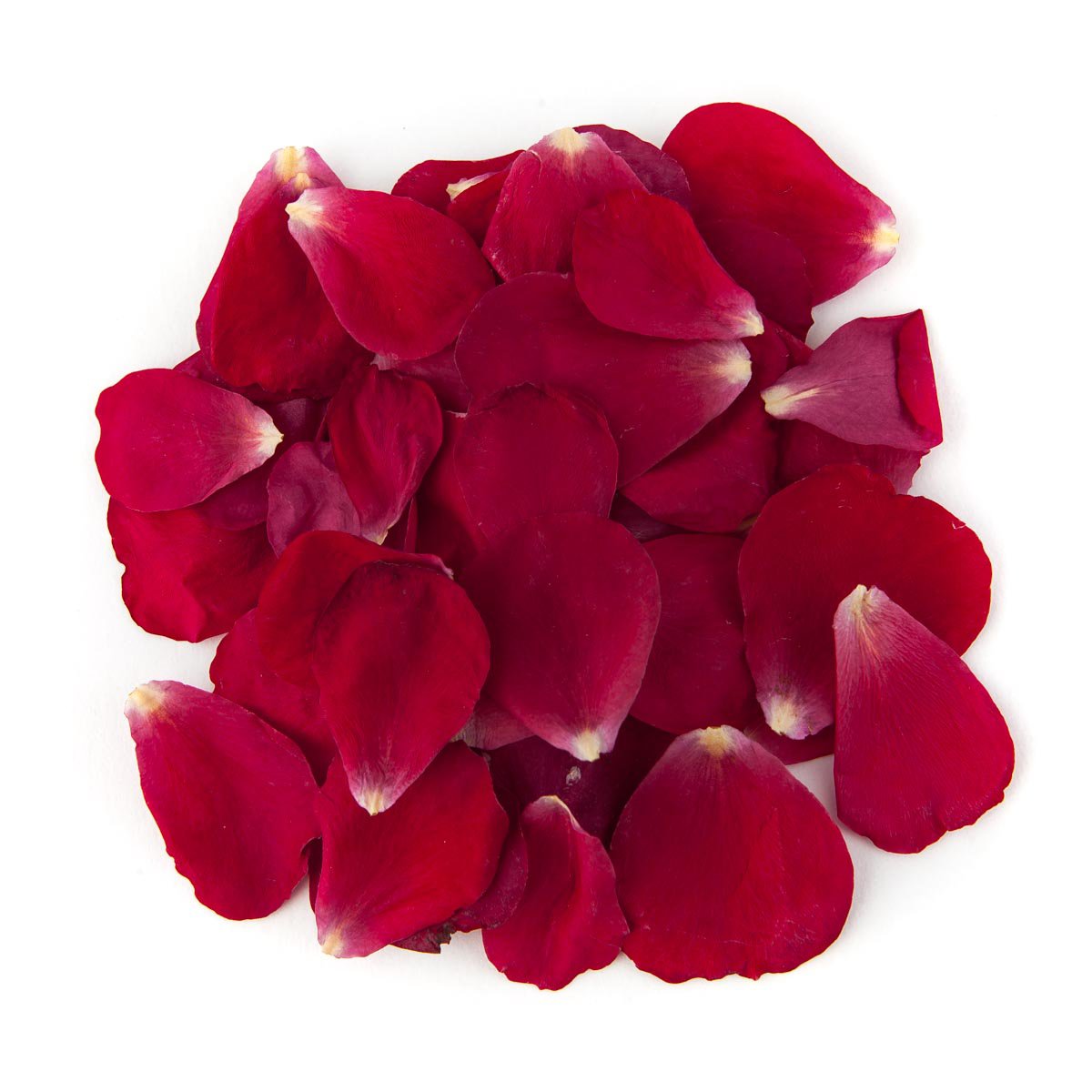
Source- https://www.confettidirect.co.uk/product/bright-red-rose-petals/
To sum it all up, ayurvedic herbs have the following benefits:
- They Balance your doshas and provide relief from various illnesses.
- They treat you for multiple things at the same time, so with a specific treatment, you benefit in other ways than that of the main disease.
- It’s a natural way of treating skin, hair and gut problems.
- They improve vitality and provide strength.
- They help boost immunity and increase one’s natural healing powers.
Write, Record and Answer! Consume Unlimited Content! All you need to do is sign in and its absolutely free!
Continue with one click!!By signing up, you agree to our Terms and Conditions and Privacy Policy.










